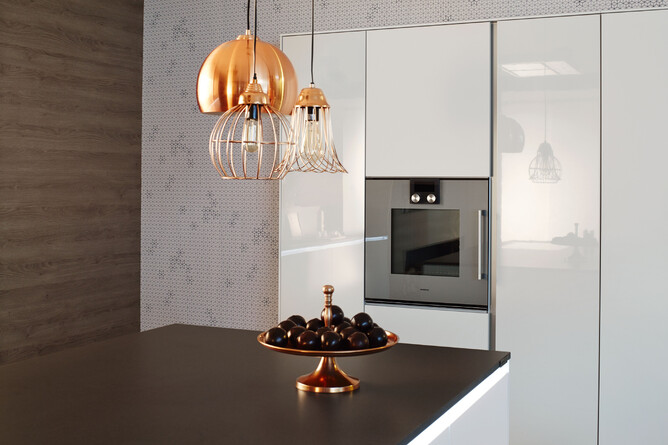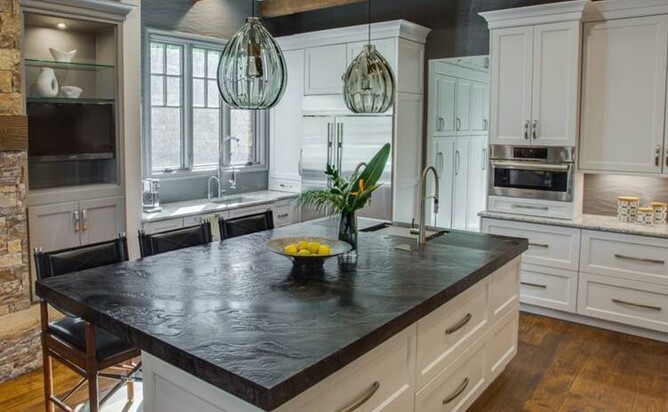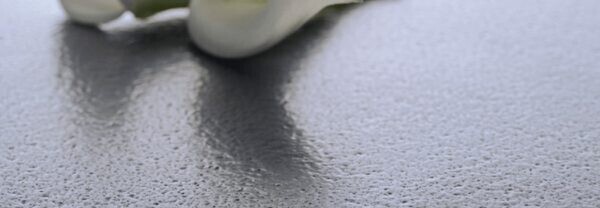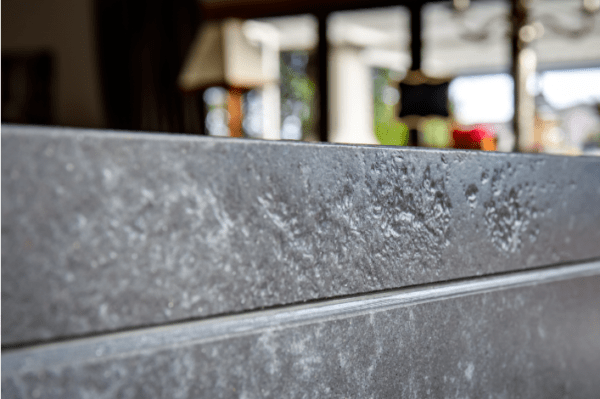Over the past few years, we have noticed kitchen design trends are incorporating textured stones. With this comes yet another decision to be made when designing your kitchen. Should I choose a stone with a polished finish or a honed finish?
What is the difference between a polished finish and a honed finish stone?
A polished finish has a glossy surface that reflects light and emphasizes the color and veins of the stone.
A Honed finish is a satin, smooth surface with relatively little reflection of light.
Polished stone benchtops have been the most common choice however honed finish stones have entered the benchtop market in a big way.
Here are 4 things you need to know about honed / suede / leathered or brushed stone.
1. There are differences in the texture or ‘roughness’ of the stone.
Honed finish – LEVEL 1 Has an even, smooth texture throughout stone without polished, reflective shine.
Suede finish – LEVEL 1 Suede finish is unique to Silestone. It has a Similar finish to honed and Also has an even texture throughout the stone without the polished shine.
Leathered/brushed/ volcanic finish – LEVEL 2 this texture is like a cow’s hide. It’s rougher than honed and can even have varying texture and dips through the slab it really does endeavor to achieve that raw look.
2. Some Leathered finish engineered stones require sealing at installation and every 5 years onward.
The rule of thumb with engineered stone is that it does not require sealing, however, some leathered or brushed engineered stones (rough cow’s hide finish) do. Speak to your kitchen manufacturer about which leathered finish stones require sealing. If they are not sure ask them to get in touch with us.
Currently, the Silestone and Caesarstone ranges do not require sealing.
3. All natural stones – polished, suede or leathered require re-sealing every 3-5 years.
Natural stones such as granite, Marble and Quartzite require re-sealing due to their porus nature. Ask if your benchtop fabricator applies seal to your natural stone benchtop when it is installed.
4. All honed/ suede/leathered/brushed finish engineered stones require more effort when cleaning.
They will hold on to marks such as oil, red wine, and even coke (left on the bench) for longer than polished stone. This is because the dips and pores that make this finish unique will hold on to oil and other residues more easily than a polished surface.
These marks should eventually disappear with some extra cleaning and time.
Fingerprint marks are also visible, particularly on the darker stones.
Two quick tips to ensure you choose a durable kitchen benchtop
- Ask if your benchtop fabricator applies a sealant to your natural stone at the time of installation.
- Ask for a sample of honed stone to take home and try your red wine, turmeric and fingertips on.
Conclusion
Let’s be honest, textured stone does give a kitchen that earthy, natural, minimalist look. It's something to embrace but also to be educated on.
If you are wanting to reduce marks and residue on your honed benchtop Lithofin NanoTOP is an easy to use high-performance impregnator that repels water and oil particles. This product is suitable for sensitive surfaces, kitchen benchtops and vanity tops. The active components build a thin, invisible film inside the capillary system of the stone, which repels water, oil, and grease.
If you would like to purchase nano top you can do so here.
If you would like to speak to us about the best choice for your kitchen benchtop don’t hesitate to contact us and one of our team will be in touch with you.






